#learningdisabilities
Explore tagged Tumblr posts
Text

New episodes of HEnabled are out! Sometimes marketing with a disability can be tough so excuse the VERY belated post 😅 The following episodes are now out:
Pad's Story: Navigating university with a new ASD diagnosis.
Sam's Burning Questions: My friend Sam does not have any disabilities but wanted to learn more about disability in a judgement-free environment; I gave him a platform to do so in this episode.
Marie-France's Story: Getting reasobable adjustments in both university and internships with a late ADHD diagnosis.
You can listen to the show on Spotify here or wherever you get your podcasts! I would love to know what you think. A new episode will be out this Sunday!
#Henabled#DisabilityInHigherEd#PodcastSchedule#DisabilityAwareness#InclusionMatters#AccessibilityForAll#DisabledVoices#ChronicIllnessCommunity#NeurodiversityInAcademia#SpoonieSupport#InvisibleDisability#DisabilityAdvocate#MentalHealthAwareness#DisabilityJustice#AcademicAccessibility#LearningDisabilities#AdaptiveEducation#DisabilityRights#DisabilityPride#HigherEdInclusion#DisabilitySupport#DisabilityLife#AbilityNotDisability#DisabledAndProud#InclusiveEducation#DisabilityCommunity#EducationForAll#DisabilityInclusion#AccessibleLearning#DisabledStudents
3 notes
·
View notes
Text

🧠 Early Speech Delays in Children: The Power of Timely Recognition and Intervention Communication is one of the most vital life skills a child develops—and it starts long before their first words. From cooing as an infant to forming full sentences as a toddler, each step in speech and language development plays a crucial role in a child’s ability to interact with the world around them.
When delays occur in these early years, they can affect not just language acquisition, but also emotional regulation, academic readiness, and social confidence. However, when speech delays are identified and supported early, the outcomes are often significantly improved.
In this article, we’ll walk through typical developmental milestones, early signs of concern, causes of speech delays, and what caregivers and professionals can do when delays are suspected.
👶 Understanding Typical Speech Development Milestones Knowing what’s “typical” helps us recognize when something might need attention. Children develop speech and language at different rates, but there are key milestones that serve as benchmarks for healthy development.
📍 Speech Milestones in Infants (0–12 months) 0–3 months: Makes cooing sounds, reacts to loud noises, smiles when spoken to.
4–6 months: Begins babbling (e.g., “ba,” “ga”), responds to tone of voice.
7–9 months: Responds to name, uses voice to express joy or displeasure.
10–12 months: Understands simple words like “no” or “bye-bye,” says first words like “mama” or “dada.”
📍 Speech Milestones in Toddlers (1–3 years) 12–18 months: Uses 10–20 words, identifies objects or people by name, begins to mimic sounds.
18–24 months: Puts two words together (e.g., “want juice”), vocabulary of 50+ words, understands simple instructions.
2–3 years: Uses three-word sentences, asks questions, speech becomes more understandable to unfamiliar listeners.
Each stage builds on the last. Missing multiple milestones or regressing in skills can indicate an issue worth exploring.
🚨 Common Early Signs of Speech Delays 👶 In Infants: Lack of cooing or babbling by 6–8 months
No reaction to sound or voices
Absence of gestures like pointing or waving
Limited eye contact or responsiveness
🧒 In Toddlers: Less than 50 words by age 2
Inability to combine two words by 2½ years
Poor pronunciation or difficulty imitating speech
Doesn’t follow simple instructions (e.g., “bring your shoes”)
Doesn’t respond to name or familiar routines
📉 Behavioral and Social Clues: Frequent frustration from not being understood
Avoidance of peer interaction or parallel play
Repetitive behaviors without verbal attempts
Lack of interest in storytelling or imaginative play
These signs don’t confirm a speech disorder on their own, but they do warrant observation and possibly a professional assessment.
🔍 Causes and Risk Factors for Speech Delays Speech delays often have multiple contributing factors, which can be developmental, environmental, or medical in nature.
👂 Hearing and Auditory Issues Even minor hearing loss (e.g., due to frequent ear infections) can affect speech clarity and language comprehension. If a child can't hear sounds correctly, they may struggle to reproduce them.
🧠 Neurological and Developmental Disorders Autism Spectrum Disorder (ASD) may impact both expressive and receptive language.
Cerebral palsy, Down syndrome, and other neurological conditions can cause muscle control or cognitive challenges that delay speech.
Global developmental delays affect multiple areas of development, including language.
🏠 Environmental and Social Influences Lack of exposure to spoken language (e.g., limited verbal interaction in the home)
Minimal play or reading activities
Excessive screen time displacing human communication
Socioeconomic factors, including access to healthcare and educational resources
A family history of speech or learning disorders
👨👩👧 What Parents and Caregivers Can Do 📝 Monitor and Document Speech Progress Parents are often the first to notice subtle delays. It helps to:
Track the number of words your child uses
Note new sounds, phrases, or word combinations
Observe how they respond to questions, commands, and interactions
Apps or speech milestone checklists can assist in tracking progress over time.
🗣️ Consult Pediatricians and Speech Therapists If concerns arise:
Talk to your pediatrician — they may recommend a hearing test, developmental screening, or referral to a speech-language pathologist (SLP).
A speech therapist can assess expressive and receptive language, sound production, and oral-motor skills.
Even mild delays can benefit from early support, and SLPs are trained to provide age-appropriate therapy techniques to build communication skills.
🧒 Leverage Early Intervention Programs In many countries, early intervention services are available (often free or subsidized) for children under age 3. These may include:
Speech-language therapy
Occupational therapy
Parent education and training
The earlier a child receives services, the better the outcomes in speech, learning, and social development.
🌱 Conclusion: The Impact of Early Action Speech delays are more common than many realize—but they’re also very treatable, especially when identified early. By understanding developmental milestones, observing signs, and seeking professional input, caregivers can set children on a path toward confident communication.
Early voices matter. Let’s listen, learn, and respond early—because every child deserves the ability to express themselves clearly and confidently.
#SpeechDevelopment#SpeechDelay#EarlyIntervention#ChildDevelopment#ParentingTips#SpeechTherapy#LanguageDevelopment#PediatricSpeech#EarlyChildhood#SpecialEducation#EducationMatters#HealthAndWellness#LearningDisabilities#ChildPsychology#DevelopmentalMilestones#TherapyForKids#Neurodiversity#HealthcareProfessionals#SupportForParents#EarlyLearning#SpeechLanguagePathology#SLPCommunity#ChildTherapy#InclusiveEducation#CaregiverSupport
0 notes
Text
Helping Children with Learning Disabilities in Gurgaon Through Therapy
A child's ability to receive, process, or express knowledge may be impacted by neurological diseases known as learning disabilities. These difficulties are related to a child's brain function rather than their intelligence. As parents and schools become more aware of the early signs and symptoms, learning disabilities in children in Gurgaon are being noticed more and more.

Common Signs to Watch For
Identifying learning issues early is crucial. Some common signs include:
Struggling with reading, writing, or basic math
Difficulty following instructions
Short attention span or poor memory
Avoiding schoolwork or homework
Lack of confidence or frustration during learning
If a child regularly shows these symptoms, professional evaluation and targeted support may be needed.
The Role of Therapy in Overcoming Learning Issues
Therapy for children with learning issues provides structured strategies to help children overcome academic and emotional barriers. These therapies are tailored to each child’s needs and may include:
Remedial education to strengthen reading, writing, and math skills
Occupational therapy to improve focus, coordination, and motor skills
Speech and language therapy to support communication development
Behavioral therapy to manage emotional or attention-related issues
With consistent support, children can learn to manage their difficulties and build skills that promote lifelong learning.
Riya’s Journey: Overcoming Learning Challenges with the Right Support
Riya, a 9-year-old girl from Gurgaon, was bright and curious but constantly struggled in school—reading felt impossible, and homework often ended in tears. Labeled "slow" by teachers and teased by classmates, her confidence faded. Concerned, her parents sought help and discovered she had a learning disability. They enrolled her in a center offering therapy for children with learning issues in Gurgaon, where experts diagnosed her with dyslexia. Through consistent sessions and emotional support, Riya slowly began to improve—words made sense, numbers felt easier, and her self-esteem blossomed. Today, she reads with joy, speaks with confidence, and dreams big—proving that with the right support for learning disabilities in children in Gurgaon, every child has the power to shine.
Seeking Professional Help in Gurgaon
Do not put off getting professional advice if you think your child may have a learning issue. Several well-known therapy facilities in Gurgaon offer specific services to support your child's success. Professional assistance is provided by certified child psychologists and therapists on platforms such as Lyfsmile, providing that therapy is both fast and kind.
Final Thoughts
For both parents and children, navigating learning challenges may be extremely difficult. However, there is a clear way early with the correct knowledge, early intervention, and structured therapy. It's not a sign of weakness to seek treatment for learning disabilities in children in Gurgaon; it's just the first step in assisting a child in realizing their strengths. For kids with learning disabilities, therapy can change not just how they learn but also how they feel about themselves and the world.
📞 Call Now: [+91 98047 91047] 📍 Visit Us: [Dwarka, Gurgaon, Delhi, India] 🌐 Website: [[email protected]]
#LearningDisabilities#ChildTherapyGurgaon#SpecialEducationSupport#TherapyForKids#EarlyInterventionMatters
0 notes
Text
Learning Disabilities in Children in Dwarka: Dyslexia and More Explained
It is now essential to identify and treat learning disabilities in Dwarka children; it is no longer an option. Many kids struggle academically even though they are bright and smart. This difficulty is frequently confused as being due to inattention or laziness, but it can actually be caused by dyslexia or other learning disabilities that impact a child's ability to process information.

What Are Learning Disabilities?
Learning disabilities in children in Dwarka are increasingly being identified as parents and educators become more aware. These are neurological conditions that interfere with the brain’s ability to receive, process, and respond to information. They can impact reading, writing, math, and even social interaction.
Children with learning disabilities are not less capable—they simply need to be taught in ways that align with how they learn best. Unfortunately, a lack of awareness often delays proper support.
Understanding Dyslexia and Other Learning Disorders
The most common of these illnesses are dyslexia and other learning difficulties. Reading, spelling, and word recognition are the main areas affected by dyslexia. Because reading is stressful and stressful children with dyslexia may read slowly, reverse letters, or avoid reading entirely.
Other learning disorders include:
Dyscalculia: Difficulty understanding numbers or math concepts.
Dysgraphia: Trouble with handwriting and written expression.
Auditory Processing Disorders: Inability to process what they hear correctly.
Nonverbal Learning Disabilities: Trouble understanding nonverbal cues and spatial relationships.
All of these fall under the broader spectrum of dyslexia and other learning disorders, and each child experiences them differently.
A Real Story from Dwarka
Aarav, a 9-year-old from Dwarka, was always curious and bright, yet reading was a daily battle. Teachers grew impatient, and his classmates made fun of him. His parents, though supportive, were unsure what was wrong.
One day, a school counselor suggested an evaluation. The diagnosis? Dyslexia.
That one test changed Aarav’s journey. With proper reading techniques, emotional encouragement, and dedicated practice, he began to progress. Today, Aarav proudly reads his favorite comics and has become more confident in class.
This story is not rare. Many children with learning disabilities in Dwarka have similar potential, waiting to be unlocked.
Signs Parents Should Watch For
Recognizing signs early is key. Look out for:
Frequent spelling mistakes
Difficulty reading aloud
Problems understanding instructions
Reversal of letters or numbers
Frustration with schoolwork
Early identification of learning disabilities in children in Dwarka can significantly improve outcomes, both academically and emotionally.
Support and Resources in Dwarka
Dwarka is seeing growth in inclusive education. Many schools now offer special educators and tailored learning support. But sometimes, even that isn’t enough. Families may require professional guidance to manage dyslexia and other learning disorders effectively.
Intervention programs, cognitive testing, and personalized study plans can make a world of difference. The earlier the support, the better the progress.
Final Thoughts
Supporting learning disabilities in children in Dwarka, particularly when it comes to dyslexia and other learning disorders, is about understanding and action. These children do not need fixing—they need the right guidance, empathy, and learning tools.
It's important to get professional assistance if you're a parent or guardian worried about your child's educational path. By putting you in touch with trusted professionals who focus on kid learning and development, platforms such as Lyfsmile may help make sure your child gets the attention they highly deserve.
📞 Call Now: [+91 98047 91047] 📍 Visit Us: [Dwarka, Gurgaon, Delhi, India] 🌐 Website: [[email protected]]
0 notes
Text
What Are the Signs of Learning Disabilities in Gurgaon Kids Parents Should Know?
Learning disabilities in Gurgaon is a growing concern that every parent should be aware of. Many children struggle silently, and if not identified early, these challenges can affect their academic, emotional, and social life. Understanding the signs of learning disabilities at an early stage can help parents and caregivers support their child's growth and confidence.
Living a fulfilled life without any barriers is a dream for many. Often, the everyday functions of the human brain are taken for granted. But for children with learning disabilities in Gurgaon , every task can be a challenge. These children may not lack intelligence, but they do require different ways of learning and support.

Main Factors That Lead to Learning Disabilities
Some common reasons that may lead to learning disabilities include:
Genetic factors (family history of learning disabilities)
Prenatal issues (complications during pregnancy or birth)
Neurological problems (differences in brain structure or function)
Environmental factors (exposure to toxins, malnutrition, or lack of stimulation)
Types of Learning Disabilities and Their Signs
Understanding the type of learning disability can help in offering the right support. Below are some major types and their signs:
1. Dyslexia (Reading Difficulties)
Difficulty in recognizing letters and sounds
Trouble in reading aloud or understanding text
Slow reading or frequent guessing of words
2. Dysgraphia (Writing Challenges)
Poor handwriting
Trouble organizing thoughts on paper
Spelling errors or incorrect grammar use
3. Dyscalculia (Math Struggles)
Difficulty understanding number concepts
Trouble with basic math operations
Problems in solving word problems
4. ADHD (Attention-Related Issues)
Lack of focus
Easily distracted
Trouble following instructions
Symptoms of Learning Disabilities
Delayed speech or language development
Difficulty in remembering instructions
Low self-esteem or frustration with schoolwork
Avoiding homework or school tasks
Inconsistent academic performance
Treatment Options for Children with Learning Disabilities
Early identification and diagnosis
Special education support and IEPs (Individualized Education Programs)
One-on-one tutoring or therapy
Behavioral therapy for attention issues
Parental counseling and involvement in the learning process
How Lyfsmile Helps
Lyfsmile offers professional child counseling in Gurgaon with experts who understand how to deal with learning disabilities in children. Their child-friendly environment, qualified therapists, and custom-designed therapy sessions help children improve their focus, skills, and confidence. Parents also receive emotional support and guidance to handle their child’s needs effectively.
Conclusion
If a learning disabilities child in Gurgaon is diagnosed and supported at the right time, their potential can be nurtured beautifully. Seeking child counseling in Gurgaon through trusted platforms like Lyfsmile can create a huge positive difference in their journey. Every child deserves a chance to succeed—and with the right help, they truly can.
Top 3 FAQs
Q1: Can learning disabilities be cured completely? Learning disabilities cannot be "cured" in the traditional sense, but with proper support, children can overcome many challenges and thrive.
Q2: What age should a parent start looking for signs? Signs can appear as early as preschool age, especially if the child shows delays in speech, writing, or understanding instructions.
Q3: Is counseling necessary for all children with learning disabilities? Yes, counseling helps in emotional and academic support, and guides parents on how to help their child effectively.
Call to Action
Is your child facing difficulties in learning or showing unusual behavior in academics? Don’t wait. Reach out to Lyfsmile today for expert child counseling in Gurgaon and take the first step towards empowering their future.
📞Phone: +91 98047 91047
✉️Email Us: [email protected]
📍 Visit us: Gurgaon , Delhi , India
#LearningDisabilities#ChildCounseling#GurgaonMoms#ParentingTips#Lyfsmile#ADHD#Dyslexia#SpecialNeedsAwareness#MentalHealthForKids#InclusiveEducation
0 notes
Text
⚠️How to Spot Learning Disabilities in Kids in Gurgaon Each child learns as per their individual pace, but at times some challenges hinder the learning process. If you are a parent living in Gurgaon, it is helpful to know about Learning Disabilities in Children in Gurgaon so that you can look for early indicators and provide proper support to your child.
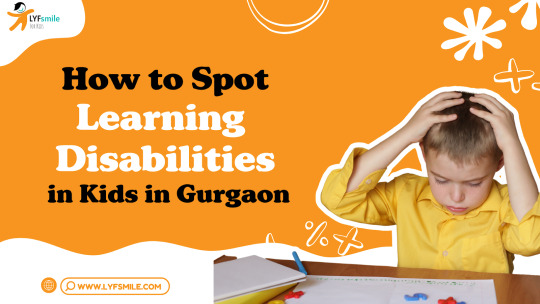
🔍 Initial Indicators of Learning Disabilities
Learning disabilities influence the way children process, comprehend, and react to information. Some typical warning signs are:
👉 Reading & Writing Difficulty
Difficulty in identifying letters and words.
Trouble understanding what they read.
Poor handwriting and difficulty forming letters correctly.
👉 Trouble with Numbers & Math
Difficulty understanding basic math concepts.
Struggles with remembering numbers and sequences.
Trouble solving simple problems.
👉 Problems with Focus & Attention
Easily distracted and struggles to complete tasks.
Has difficulty following instructions.
Frequently forgets what was just said.
👉 Speech & Language Delays
Limited vocabulary for their age.
Trouble expressing thoughts clearly.
Difficulty understanding and following conversations.
📒 What Can Parents in Gurgaon Do?
Talk to Teachers – Teachers have insights into your child's learning patterns.
Get a Professional Evaluation –Teachers can share information about your child's learning habits.
Obtain a Professional Assessment – A special educator or child psychologist can identify learning disabilities.
Focus on Strengths – Identify your child's strengths and interests to boost confidence.
👤 Where to Get Help in Gurgaon?
Special Education Centers – Schools with specially planned programs for kids with learning challenges.
Speech & Occupational Therapists – A child psychologist or a special educator can diagnose learning disabilities.
Tutoring & Learning Programs – Specialized learning strategies tailored for children with disabilities.
🚀 Importance of Early Intervention
The earlier a learning disability is found, the better the chances of your child's success. Learning strategies, therapy, and patience can really make a big difference in your child's schooling.
💡 FAQs
1. How do I know whether my child has a learning disability?If your child consistently struggles with reading, writing, math, or following instructions, consult an expert for an evaluation.
2. Can learning disabilities be treated?Learning disabilities cannot be "cured," but with proper support, children can learn to cope effectively.
3. Where can I get expert assistance in Gurgaon?There are numerous special education schools, therapists, and child psychologists in Gurgaon who deal specifically with learning disabilities.💌 Take the First Step Today! If you feel your child has Learning Disabilities in Children in Gurgaon, do not hesitate. Early intervention and proper guidance can support your child to excel. Seek a professional, get the proper advice, and equip your child for a better tomorrow!
Lyfsmile is here to help.Whatsapp/Call +91 98047 91047Gmail: [email protected] to get started. 📍 Visit Us: Gurgaon!
#ChildDevelopment#LearningDisabilities#ParentingTips#EarlyIntervention#ChildCare#SpecialEducation#GurgaonParents#SpeechTherapy#KidsLearning#RedFlagsInKids
0 notes
Text
Unlocking Potential: Supporting Children with Learning Disabilities
Meet Alex, a creative child who loves building Legos but struggles with reading. Like many kids with learning disabilities, Alex feels frustrated in school—but with the right support, they can thrive. 🌟
Learning disabilities, such as dyslexia, dyscalculia, dysgraphia, and ADHD, are not about intelligence; they’re about how the brain processes information. Early recognition and tailored strategies like Individualized Education Plans (IEPs), multi-sensory learning, and social skills training can make all the difference. 💡
Let’s empower children like Alex to unlock their potential and shine!
0 notes
Text
youtube
#Dyslexia#ChildDyslexia#ParentingTips#SignsOfDyslexia#EarlyIntervention#LearningDisabilities#SpecialEducation#ParentingAdvice#ChildDevelopment#DyslexiaAwareness#EducationalSupport#ParentingInsights#DyslexiaHelp#ReadingStruggles#EarlyDiagnosis#SpecialNeeds#SupportYourChild#Youtube
0 notes
Text
Learning Disabilities in Children: Understanding and Solutions

Learning disabilities in children are often misunderstood, leading to frustration for both children and parents. These challenges go beyond academics, affecting a child’s self-esteem and confidence. Recognizing and addressing learning disabilities in children early can help them thrive and reach their full potential. This article explains learning disabilities in children and how parents can support their children in overcoming these challenges.
What Are Learning Disabilities in Children?
Learning disabilities in children are conditions that affect how they learn. Children with learning disabilities may struggle with reading, writing, math, or focus. It’s important to understand that these children are just as intelligent as others, but their brains process information differently.
Common Types of Learning Disabilities in Children
Dyslexia: Difficulty with reading, writing, and spelling.
Dyscalculia: Struggles with math concepts, numbers, and calculations.
Dysgraphia: Trouble with handwriting, organizing thoughts on paper, or written expression.
ADHD: Not always a learning disability, but it impacts focus and attention, affecting learning.
How to Identify Learning Disabilities in Children
Look for these early signs:
Falling behind in school despite normal intelligence.
Difficulty following instructions or remembering information.
Poor handwriting or trouble understanding reading material.
Difficulty concentrating or staying focused.
Example: A child struggling with reading received help early. With proper support, they improved and now perform at the same level as their peers.
Solutions and Support for Learning Disabilities in Children
Learning disabilities in children can be managed effectively with the right steps:
Professional Assessment Consult a psychologist or educational expert for a proper diagnosis and personalized support plan.
Individualized Education Plan (IEP) An IEP provides tailored support like extra time, specialized teaching methods, or audiobooks.
Specialized Tutoring One-on-one tutoring focuses on the child’s specific difficulties, helping them build skills without pressure.
Behavioral Therapy For children with ADHD or emotional challenges, therapy teaches coping skills and improves focus.
Supportive Home Environment Encourage your child to ask for help and celebrate small progress. A positive atmosphere at home and school is essential.
Teaching Self-Advocacy As children grow, teach them to ask for help, use accommodations, and take charge of their learning.
Conclusion
Learning disabilities in children don’t mean they are less intelligent. They simply need different strategies to learn. With timely intervention and support, children can overcome challenges and achieve their goals. If your child is struggling, seek professional help without delay and give them the opportunity to succeed.
Every child deserves a chance to unlock their potential. Get the right support today and see your child’s success story unfold!
📞 Call / Whatsapp: +91–9804791047
👉 Visit Us: https://lyfsmile.com/child-counseling.php
0 notes
Text
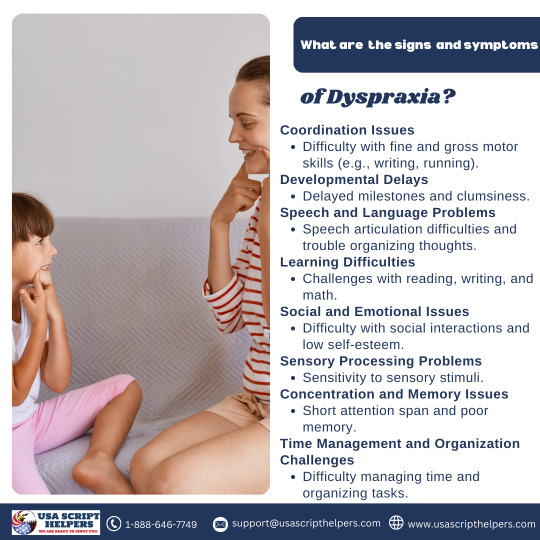
🔍 Struggling with coordination, speech, or social interactions? These could be signs of Dyspraxia. Learn more about the symptoms and how to support those affected. #DyspraxiaAwareness #CoordinationIssues #SpeechDifficulties #SensoryProcessing #LearningDisabilities #usascripthelpers
#DyspraxiaAwareness#CoordinationIssues#SpeechDifficulties#SensoryProcessing#LearningDisabilities#usascripthelpers
0 notes
Text

For this week's episode of HEnabled, I sat down with the wonderful Maddy to discuss their experience of Higher Education.
Maddy has been studying part-time for a BSc (Honours) in Computing & IT and Business at the Open University since 2019, after Idiopathic Intercranial Hypertension forced them to change their life's trajectory. During Maddy's studies, they acquired an ADHD diagnosis, which deepened their understanding of themselves.
Maddy's story is the perfect example of an unconventional higher education journey. You can listen to it on Spotify via the link below, or wherever you get your podcasts!
Listen now: https://open.spotify.com/episode/1LDb4JwLDbjhpqPFl5SATo?si=8bfe67c298b14559
#Disability#DisabilityAwareness#ChronicIllness#InvisibleDisability#IIH#ADHD#ADHDAwareness#Neurodivergent#Neurodiversity#ActuallyAutistic#AutismAcceptance#MentalHealth#Spoonie#Accessibility#Inclusion#HigherEducation#RemoteLearning#DistanceEducation#PartTimeStudent#AdultLearners#InclusiveEducation#LearningDisabilities#SpecialEducation#EducationForAll#RepresentationMatters#StudentVoices#Podcast#DisabilityPodcast#EducationPodcast#StorytellingMatters
3 notes
·
View notes
Link
A Speaker For Your Event – Passionate Charity CEO Jonathan Spencer CEO Jonathan Spencer: A Speaker for your event. A Voice for Change and Empowerment in Your Community Are you looking for a speaker for your event who can not only captivate your audience but also shed light on an incredibly important cause? Jonathan Spencer, the CEO of Zetetick Housing, is your answer. With a rich background in advocating for the rights and well-being of individuals with learning disabilities, autism, and additional needs, Jonathan brings a unique blend of passion, knowledge, and engaging storytelling to every event. Experience and Expertise: Jonathan Spencer is
0 notes
Text
Unleashing the Power of Play: The Numerous Benefits of Play-Based Pediatric Occupational Therapy
As pediatric occupational therapists, we know that children learn and develop through play. Play not only allows children to have fun, but it also helps them develop the skills they need for daily activities and function. This is why play-based Occupational Therapy (OT) has become a popular approach among therapists and parents alike as it offers a range of benefits for children. Let’s dive in deeper to explore some of the key benefits of play-based OT.
1. Improves Motor Skills
Play-based OT is a great way to improve a child's motor skills, including both gross and fine motor skills. By incorporating various activities into therapy sessions, such as building blocks, playing with playdough, catching and throwing a ball, or crawling under an obstacle course, children can improve their coordination, balance, and strength. This can help them with daily activities such as dressing, feeding, and writing.
2. Enhances Cognitive Skills
Play-based OT can also help children improve their cognitive skills such as problem-solving, planning, and organization. By engaging children in activities such as puzzles, memory games, and board games, children can improve their attention, memory, and processing skills. This can help them with school-related tasks like reading, writing, and math.
3. Boosts Self-Esteem
Play-based therapy can be an excellent way to boost a child's self-esteem and confidence. By providing a safe and supportive environment where they can be creative and explore different materials and activities, children can experience success and accomplishment. This can help them feel more confident in their abilities and encourage them to try new things.
4. Facilitates Socialization
Play-based therapy sessions also offer children the opportunity to socialize and interact with others, which is an essential aspect of their development. In group sessions, for example, children can learn how to share, take turns, and collaborate with others while engaging in different activities. This can also help children improve their communication skills and develop relationships with peers.
5. Customizable to Individual Needs
Play-based therapy is customizable to each child's unique needs. Play-based sessions can be tailored to target specific skills and areas of weakness, whether it's fine motor skills, sensory processing, or social skills. This way, each child can receive a personalized approach that meets their specific needs and goals.
#pediatricoccupationaltherapy#OTforchildren#sensoryprocessing#fineandgrossmotor#handwriting#feedingtherapy#autism#developmentaldelay#cognitiveimpairment#behavioraldisorders#ADHD#learningdisabilities#earlyintervention#sensoryintegration#visualperception#socialskills#motorplanning#selfregulation#assistivetechnology#schoolbasedOT#playtherapy#therapeuticinterventions#balanceandcoordination#mentalhealth#occupationaltherapygoals
1 note
·
View note
Text
We provide the flexibility to meet each student's individual learning needs in a comfortable and relaxed setting, where students progress as they demonstrate mastery. Students here get daily one-on-one instruction and support.


#specialneeds#specialeducation#saydyslexia#reading#parenting#ortongillingham#neurodiversity#neurodivergent#microschool#madebydyslexia#learningdisability#learningdisabilities#learning#education#dyspraxia#dyslexic#dyslexiasupport#dyslexiaisreal#dyslexiaeducation#dyslexiaawarenessmonth#dyslexiaawareness#dyslexiaadvocate#dyslexia.#privateschool#dysgraphia#dyscalculia#bocaraton#asd#adhd
0 notes
Text
Learning Disabilities in Children: Causes, Types, and Solutions
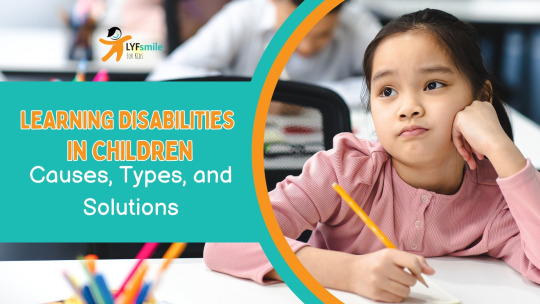
Learning disabilities in children mean difficulties in reading, writing, listening, or understanding math. These challenges can also affect other areas of their lives. With proper care and support, children can overcome these difficulties. Lyfsmile and its expert psychologists are dedicated to helping children manage and grow beyond these challenges.
read more...
0 notes
Text
Conquering Math Anxiety: Unlocking Academic Success

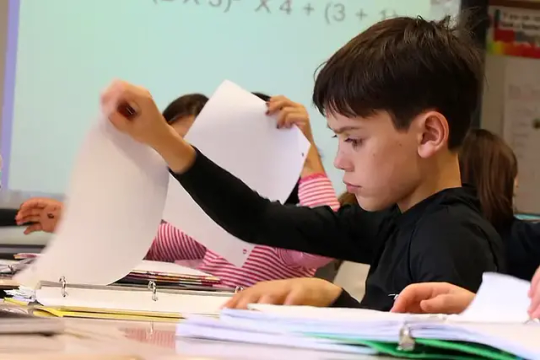
Young boy studying math in class. Photo by Woodley Wonder Works. Flickr.
Math Anxiety: Embracing Numbers with Confidence
Overcoming Fear of Numbers Many children worldwide experience math anxiety—an unsettling fear or stress linked to math tasks. This anxiety can be debilitating, discouraging young learners from confidently approaching math problems. The fear of making a mistake often stands as a barrier to effective math learning. Symptoms of Math Anxiety Math anxiety can manifest in various ways, including nervousness, dread, or even physical symptoms like sweaty palms or an accelerated heart rate when confronted with math-related tasks. These emotions can create mental blocks, making it challenging for students to grasp mathematical concepts and apply them effectively. Empowering Young Learners Addressing math anxiety necessitates a supportive and empathetic approach. Teachers and parents play a vital role in helping children overcome this hurdle. Breaking down complex problems into smaller, manageable steps and reinforcing effort rather than merely correct answers can gradually build math confidence, empowering young learners to embrace numbers with confidence.
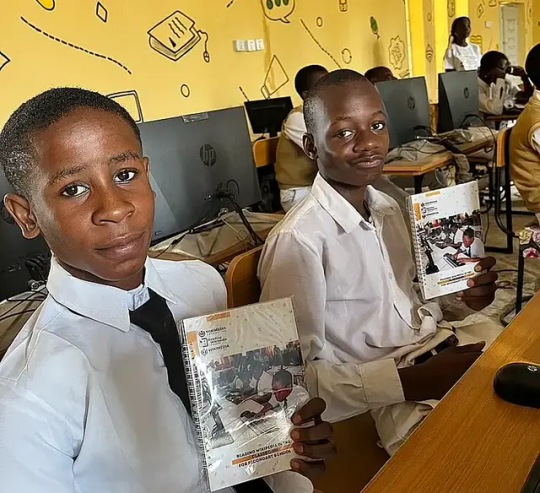
Reading Wikipedia in the Classroom for Secondary School Students. Photo by James Rhoda. Wikimedia.
Reading Comprehension: Beyond Words
Unlocking the Meaning Behind Text Reading goes beyond decoding words; it involves comprehending the deeper meaning behind them. Reading comprehension is a multifaceted skill, requiring the ability to analyze, infer, and synthesize information from text. Navigating Reading Challenges Children who struggle with reading comprehension may accurately decode words but often struggle to connect the dots between sentences and paragraphs. This challenge can hinder their performance across various subjects. Enhancing Reading Comprehension To address this challenge, educators and parents worldwide can employ strategies that focus on enhancing reading comprehension skills. This may include asking questions to stimulate critical thinking, promoting discussions about the material, and exposing children to diverse genres and topics to broaden their understanding of the text.
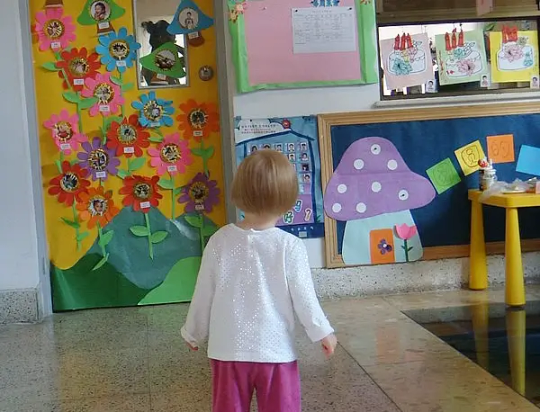
What are they doing in there... Photo by Scott & Elaine van der Chijs. Flickr.
Nurturing a Love for Learning: Sustaining Interest
Fostering Curiosity and Engagement Maintaining a child's interest in subjects like math and reading is crucial. When young learners lose interest, their enthusiasm and effort may wane, hampering their academic progress. Sparking Passion for Learning Educators and parents worldwide can ignite a passion for learning by introducing engaging and relevant content. Math and reading need not be perceived as dry or abstract subjects; instead, they can serve as tools for exploring the world. Real-world examples, hands-on activities, and literature that resonates with children's interests can make a significant difference in fostering a love for learning.

Young girl showing the mental struggles that come with dyslexia. Photo by Kristine Lewis. Flickr.
Facing Unique Learning Challenges
Learning Disabilities: Overcoming Obstacles Specific learning disabilities like dyslexia or dyscalculia can make it extremely challenging for children to excel in reading and math. These disabilities affect how children process information, making it difficult for them to acquire and apply essential skills. Early Identification and Support Recognizing the signs of learning disabilities is crucial for early intervention. Teachers and parents globally should be attentive to indicators such as difficulty in reading fluently, problems with number concepts, or persistent struggles despite adequate instruction. Once identified, specialized support and strategies can be implemented to help children with learning disabilities thrive academically.

Oceanway Middle School on Earth Day with a new outdoor classroom. Photo by JAXPORT. Flickr.
Bridging the Opportunity Gap: Equal Access to Education
Limited Resources: Equalizing Opportunities Socioeconomic disparities can lead to unequal access to quality educational resources and tutoring, depriving disadvantaged children worldwide of essential support. Ensuring Equity in Education Addressing this issue requires a collaborative effort from communities, schools, and policymakers across the globe. Initiatives to bridge the opportunity gap, such as providing free or low-cost educational resources, offering after-school programs, and ensuring equitable access to quality schools, can make a substantial impact. By leveling the playing field, we can help all children reach their academic potential, regardless of their socioeconomic background.

Academic Achievement Award. Photo by Hugo y Charli. Flickr.
Building Blocks for Success: Academic Achievement
Math and Reading Proficiency: A Path to Success Proficiency in math and reading serves as the cornerstone of a child's educational journey, regardless of geographical location. These skills are not confined to specific subjects but serve as essential tools for understanding and excelling in various disciplines worldwide. Unlocking a World of Opportunities In today's interconnected world, strong math and reading skills open doors to a myriad of professions and career paths. From STEM (Science, Technology, Engineering, and Mathematics) fields to literature, social sciences, and more, a solid foundation in math and reading unlocks a world of opportunities for children worldwide.
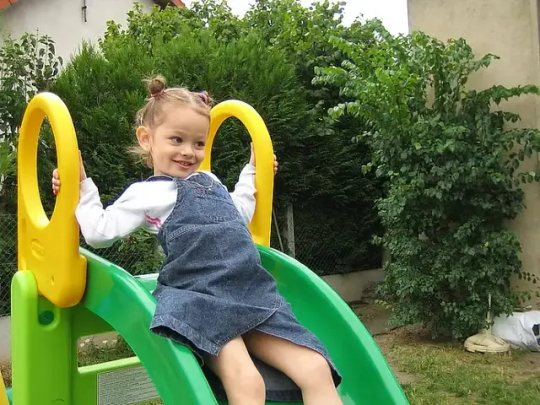
Soon Amandine got more and more confident. Photo by Sebastien Bertrand. Flickr.
Building Confidence and Self-esteem
Empowering Personal Growth Continual academic struggles can erode a child's self-confidence and self-esteem, impacting their overall well-being. Education is not just about acquiring knowledge; it's also about fostering a sense of self-worth and confidence in one's abilities. Fostering Resilience and Self-Belief Children worldwide need a supportive atmosphere where making mistakes and seeking help are encouraged. Promoting a growth mindset, where effort and perseverance are valued over innate abilities, can boost a child's self-confidence and motivation to improve. Recognizing that mistakes are opportunities for growth enables them to become more resilient learners.

Poverty and kindness of the child. Photo by Bibek Gaire. Wikimedia.
Breaking Cycles of Poverty: The Economic Impact
Education as a Catalyst for Change Insufficient proficiency in math and reading can have a lasting economic impact, contributing to cycles of poverty worldwide. Education is a powerful tool for breaking this cycle, but academic struggles can impede progress. Leveling the Playing Field As children from diverse backgrounds aim for academic success, it's essential to address these challenges. Early intervention, access to quality resources, and equitable opportunities can empower young learners globally to reach their full potential and break free from the constraints of poverty. Sources: THX News, National Report Card & National Center for Education Statistics. Read the full article
#Academicachievement#Buildingconfidence#Earlyintervention#EconomicImpact#Engaginglearning#Learningdisabilities#Mathanxiety#Mathreading#Qualityresources#Readingcomprehension#Supportiveenvironment
0 notes